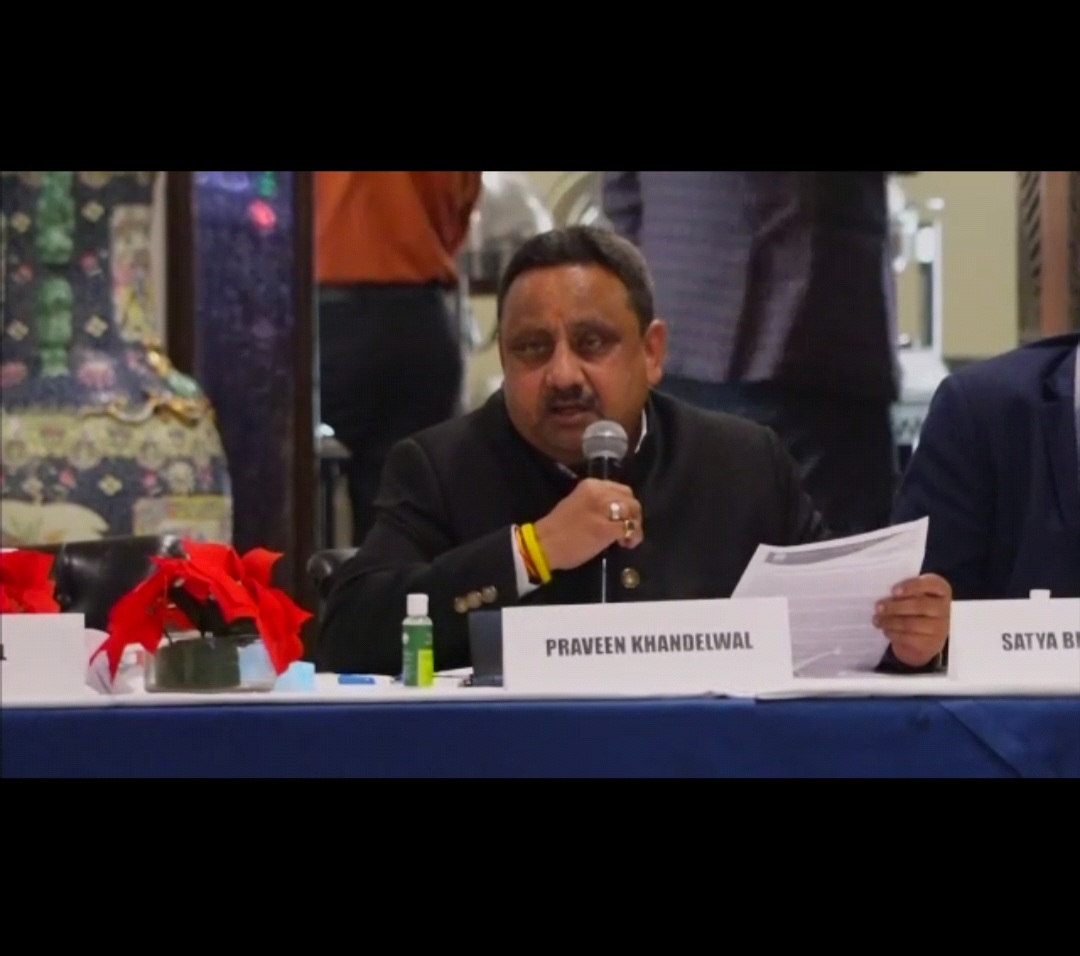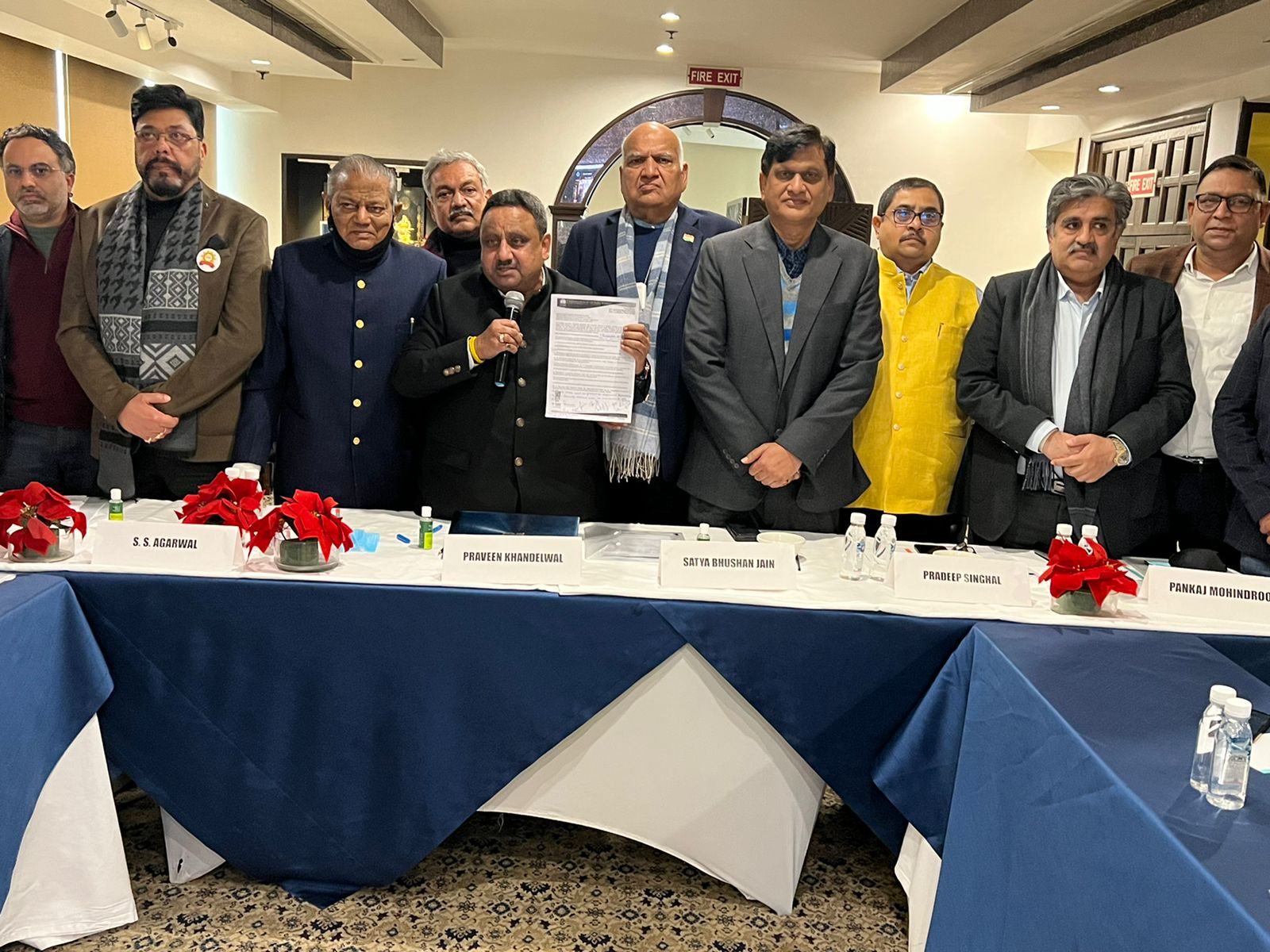Delhi Declaration is expected to save Indian traders from the tremendous growth of ecommerce business in the country
CAIT wants a clear policy should be declared for ecommerce business and those who violate the policy or rules should be punished severely
New Delhi, NFAPost: Confederation of All India Traders (CAIT) in association with other 12 trade bodies including ICEA, AICPDF, AIMRA, NRAI, AITWA, & CMDA organised “National Ecommerce Conclave” and came up with 14 Point Delhi Declaration to save Indian traders from the tremendous growth of ecommerce business.
The Declaration is made in the context of formulation of an ecommerce policy by the DPIIT Department of the Ministry of Commerce.
Speaking on ecommerce in India and basic fundamentals, CAIT President Praveen Khandelval said ecommerce has transformed the way the market operates and the increase in internet penetration has led to significant growth of ecommerce in India during the past few years.
“Indian ecommerce business has grown from 14 billion $in 2014 to $84 billion in 2021, and as per the studies, ecommerce in India is expected to be worth $188 billion by 2025. India’s online shopper base is around 140 million in 2020, third after China and USA, which was further triggered by Covid-19 pandemic,” said CAIT National Secretary General Praveen Khandelwal.
Speaking at the function, he also said the small businesses have started adapting to the growing needs of the customers by having a digital presence in some form or the other.
“With such growth and huge potential, digitisation is the way forward and ecommerce is here to stay, and therefore, it is desirable to have sustainable growth in the same. It is important that the entire ecosystem and all the stakeholders are benefited from the growth of ecommerce, instead of a few handful of players in the market,” said Praveen Khandelwal.

The Delhi Declaration also calls for forming an apex regulatory body for ecommerce business in India which should also take into confidence the concerns of traders who are spread across multiple business verticals.
Despite being invited to this conference, other ecommerce companies including Amazon, Flipkart choose not to participate, while top executives from ITC, Hindustan Lever, Coca-Cola, Amway, Udaan, Urban Ladder, Big Basket, Reliance etc. attended the conference and spoke on the issue of commerce.
All the speakers participating in the conference said that instead of competition in e-commerce business, it is necessary to complement each other, while strict rules should be made in the e-commerce policy so that no one can violate the rules and laws.
CAIT Secretary General Praveen Khandelwal said that at a time when the priority of digitising infrastructure on a large scale has been announced to give impetus to the Digital India vision of Prime Minister Shri Narendra Modi in the Union Budget presented by the Finance Minister recently.
“In view of this, ecommerce business will develop till every corner across the country and because of this it has become necessary that a clear policy should be declared for ecommerce business and those who violate the policy or rules should be punished severely,” said CAIT Secretary General Praveen Khandelwal.
The meeting highlighted the fact that the government of India allowed FDI in ecommerce with an intent to ensure that the retail sector would continue to perform but the industry is vitiated in the absence of any policy or a monitoring authority.
“The issue is not the policy’s intent, but it is of the rampant violation of the guidelines. It is a known fact that all the meanings of the policymakers have been defied. Therefore, the most critical aspect of the policy is not in the policymaking itself but in creating such a deterrent that no individual leader can dare defy the policy in letter and spirit,” said a speaker at the function.
The following points have been included in the 14-point charter :
1.Irrespective of Foreign or Indian Marketplace e-Commerce companies, Sellers registered on the marketplace should not be the related companies of the marketplace.
2.Marketplace platform entity shall not, directly or indirectly, control inventory of the seller.
3.Marketplace should not act as a whole-seller to their registered sellers.
4.Marketplace e-commerce companies should not own brands or create their private label brands.
5.Marketplace companies should not be allowed to exploit the provisions of FDI policy in Press N0te 2 by registering their affiliate companies on their platform and allowing them to sell 25% of the goods.
6.No Marketplace entity shall act as inventory-based e-commerce entity. Similarly, no inventory-based e-commerce entity shall register any third-party seller.
7.Every marketplace platform must act in a completely neutral manner towards the sellers, consumers and other service providers. E-commerce entity shall provide non-discriminatory services to all consumers.
8.The banks should not be allowed to selectively provide offers/cashback on the marketplace platforms.
9.Marketplace e-commerce companies must carry out strong KYC and due-diligence of sellers before on-boarding them so that they do not end up selling illegal products.
10.Each platform must nominate and publish the complete details about their Grievance Officer, Nodal Officer and Compliance officer.
11.Each Platform must include the sellers details including their address and contact number of their platform.
12.In line with other regulatory bodies like IRDA/RBI/TRAI/RERA etc, an independent e-commerce regulatory body should be set to protect the interests of small traders, startups, MSMEs.
13. Data security should also be included in the policy
14. To take further the initiative, the Conclave will constitute a special task force of the organisations working in different verticals.
Beside CAIT, other organisations including India Cellular and Electronics Association,(ICEA), All India Mobile Retailers Association,(AIMRA), All India Transport Welfare Association (AITWA), All India Consumer Products Distributors Federation,(AICPDF), National Restaurants Association of India,(NRAI), All India Jewelers and Goldsmith Federation (AIJGF), Indian Direct Selling Association (IDSA), Computer Media Dealers Association(CMDA), MSME Development Forum, Federation of Indian Small and Micro Enterprises,(FISME), are the stakeholders of special task force.






